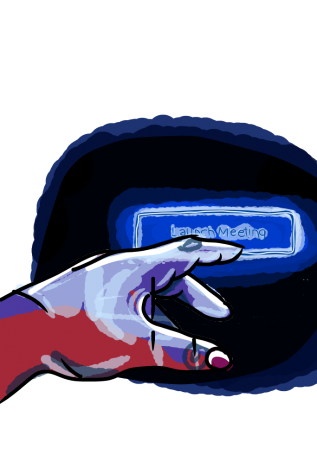College incorporates Race, Violence and Health academic theme into first virtual undergraduate conference
April 22, 2021
Whitman’s 23rd annual undergraduate conference (WUC) on April 13 was the first to be fully virtual and incorporated the Race, Violence and Health academic theme.
“The Whitman Undergraduate Conference is truly an illustration of our students’ liberal arts experience,” Provost and Dean of Faculty Alzada Tipton said in her introductory video to the conference. “Their excellent presentations demonstrate the deep, far-reaching value of the liberal arts, as do the wide array of disciplines represented, and the broad implications and ethical engagements of those presentations.”

121 students presented at this year’s conference. 32 presented posters and 90 gave presentations during panels ranging in theme from “Terrestrial and Cosmological” to “Place, Culture and Politics.”
Last year’s conference was one of the many events canceled because of the coronavirus pandemic. 215 students submitted video presentations and posters, but there were no panel discussions.
While this year’s conference was held online, many of the features missing from last year’s asynchronous conference were re-incorporated. Panel discussions were held over zoom and posters were displayed in a “virtual Cordiner Hall.” Keith Raether, Director of the Office of Grants and Fellowships, which coordinates the conference, said the digital conference had challenges and benefits.
“For all of its inconvenience, technical challenges and missing ingredient of electricity in the room, a virtual WUC has its benefits. It doesn’t disappear in a day. You can take in virtually everything in the conference today, tomorrow or any time until next year with a simple visit to the WUC website. You can read science posters from beginning to end, undistracted and at your convenience,” Raether said in an email to The Wire. “The virtual WUC reached a larger and much broader audience as well. It was a delight to see so many parents and even grandparents in the Zoom rooms.”
Three panels focused on this year’s academic theme: Race, Violence and Health (RVH). Along with his role in the office of grants and fellowships, Raether is a member of the academic theme steering committee and said that since the theme is relevant to all areas of study, it made sense to incorporate it into the conference.
“RVH programming has been dynamic all year, and I knew how abundantly and effectively the theme had been incorporated into curricula across all the divisions. We put out a special call for proposals tied to RVH,” Raether said. “We made our intention clear that we wanted to build whole conference panels around the academic theme. The students really delivered.”
Chloe Michaels, a junior French and English major, presented her research on the book Narratives of the Life of Frederick Douglass: an American Slave in the “Race, Violence and Health: Justice” panel. She said that presenting on the RVH panel meant that she was able to engage with students from other academic disciplines.
Oftentimes, Raether said, conference organizers look for unexpected connections and themes when forming panels but this year was the first time that they requested projects from students under a single theme.
“I wouldn’t have thought how they all sort of tied in together so I thought that was pretty cool and creative on the part of the people that decided to do that,” Michaels said. “ I also did have a lot of fun going to other blocks during the day and seeing the dialogues between all the other different presentations.”



